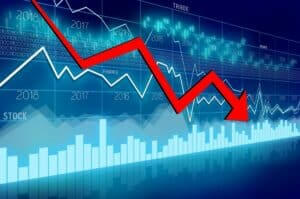Asia Pacific stocks fell on Friday morning as global bonds started to stabilize. An aggressive bonds selloff previously drove sharp losses in U.S. shares.
By 10:11 PM ET (3:11 AM GMT), Japan’s Nikkei 225 was down 2.29%. South Korea’s KOSPI was down 2.67%. In Australia, the ASX 200 lost 1.88%.
In Hong Kong, the Hang Seng Index dropped 2.18%. This is while the city expects its first batch of Pfizer Inc. (NYSE: PFE)/ BioNTech SE COVID-19 vaccine on Saturday.
The Shanghai Composite of China fell 1.62%, while the Shenzhen Component dropped 1.31%.
During the selloff, Benchmark Treasury yields plunged back below 1.5% at Friday’s open. Overnight, the ten-year Treasury yield gained as much as 23 basis points to 1.6%. Holders of mortgage securities had to offload government bonds; thus, the surge turned up.
The ten-year U.S. yield adjusted for inflation rose to its highest level since June last year. This is a warning for riskier assets that benefited from the ultra-easy monetary policy brought on by the pandemic.
Westpac head of rates strategy Damien McColough said that the fixed income route is shifting into a more lethal phase for risky assets. The rise in yields has long been mostly seen as a story of improving growth expectations, if anything padding risky assets, he said.
However, the overnight move included a steep lift in real rates. It as well brings the U.S. Federal Reserve’s lift-off expectations forward.
Stocks on the Move.
GameStop Corp. shares doubled once during the previous session then ended 19% higher.
Though investors are hoping for recovery, some have worries about the rising inflation. This is because it could prompt central banks to withdraw their monetary policy support.
The Fed assured that there are no plans to tighten policy prematurely. It also said that the rise in Treasury yields reflects optimism. The worrying continued, however, despite this.
Schwab Center for Financial Research vice president of trading and derivatives Randy Frederick said it’s all about interest rates. Moreover, he said that tech had been a relative outperformer. As it led on the way up, it will likely lead down, too, Frederick added.
Fed Chairman Jerome Powell earlier in the week said that the central bank would continue its ultra-easy monetary policy. Moreover, it would overlook the short-term rise in inflation in his testimonies before Congress earlier in the week. The market, however, has almost fully priced in a first-rate hike by the end of 2022.











